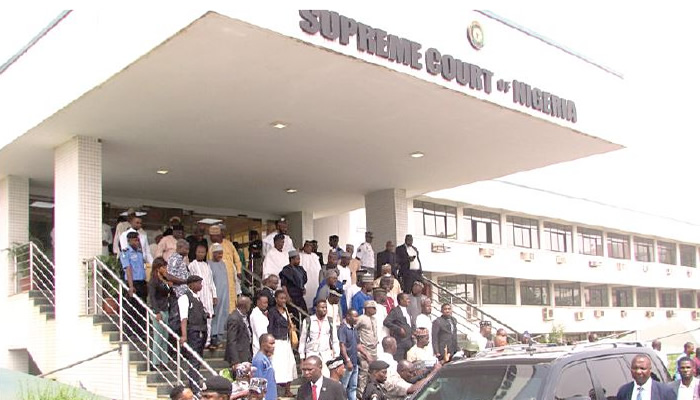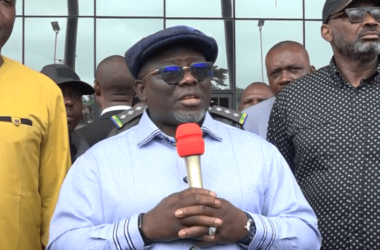The Federal Government, on Tuesday, requested the Supreme Court to dismiss a case brought by 19 Nigerian states seeking to declare the operations of the Economic and Financial Crimes Commission (EFCC) illegal.
The government, represented by the Attorney-General of the Federation and Minister of Justice, Prince Lateef Fagbemi, SAN, argued that the case posed a serious threat to the nation’s anti-corruption fight.
In a move aimed at discrediting the lawsuit, Fagbemi filed a preliminary objection and counter-affidavit on October 18, challenging the legality of the suit. According to him, the EFCC was established in line with Section 15(5) of the 1999 Constitution, which gives the government the power to eradicate corruption.
The plaintiffs in the case, however, argued that the EFCC was improperly established, claiming it was based on an international convention that was not correctly domesticated in Nigeria. They insisted that the EFCC’s establishment bypassed key constitutional procedures, rendering it invalid.
Fagbemi, SAN, dismissed this argument, asserting that “ruling in favour of the plaintiffs will have far-reaching implications, especially on all the previous convictions.” He urged the court to reject the lawsuit, cautioning that a ruling against the EFCC would send the wrong signal to the public, suggesting that the country no longer supports the fight against corruption.
In a surprising turn of events, three states—Anambra, Adamawa, and Ebonyi—decided to withdraw from the lawsuit. Anambra’s Attorney-General, Prof. Sylvia Ifemeje, informed the court that the state had filed its withdrawal notice on October 20.
Adamawa also filed a notice of withdrawal on October 14, while Ebonyi followed suit through its counsel, Mr. Ikenna Nwidagu. Their withdrawal from the case was not contested by the Attorney-General of the Federation.
As a result, the Supreme Court, led by Justice Uwani Abba-Aji, removed the names of Anambra, Adamawa, and Ebonyi from the suit. However, other states, including Kogi, Oyo, Benue, and Kebbi, maintained their participation in the legal battle.
Osun state, through its Attorney-General, Mr. Oluwole Bada, even applied to consolidate its own grievances against the EFCC with Kogi’s case.
The main argument of the states remaining in the lawsuit is that the EFCC Act was not properly enacted under the 1999 Constitution. According to the plaintiffs, the establishment of the EFCC required approval from a majority of the State Houses of Assembly, which was not obtained. They contend that the National Assembly alone did not have the authority to enact the EFCC Act without state involvement.
The states are challenging the legality of the EFCC, arguing that any institution formed under an unconstitutional process should be declared invalid.
Kogi state, which originally filed the case, raised six questions for the court to consider and sought nine principal reliefs. One of the key demands was a declaration that the EFCC and other federal agencies cannot investigate or manage funds belonging to Kogi state or its local governments.










